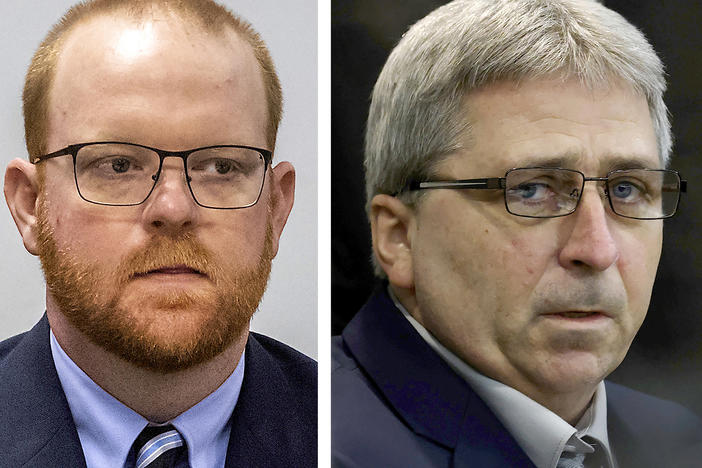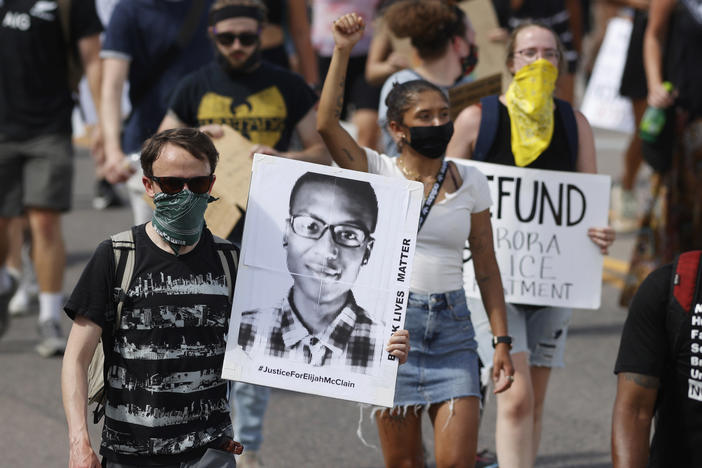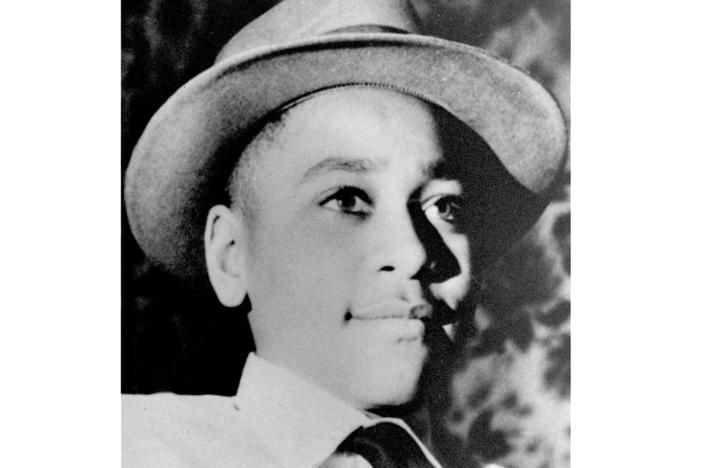Section Branding
Header Content
Correctional Officers File Racial Discrimination Charges Over Guarding Derek Chauvin
Primary Content
Eight correctional officers of color at a Minnesota county jail say they were reassigned or prevented from working in the unit where the former Minneapolis police officer charged with killing George Floyd was held when he was booked into the facility.
They also allege that the former officer, Derek Chauvin, was given special treatment in his brief stay in the jail before being transferred to a state prison.
"You can't segregate and discriminate against employees of color because of the color of their skin," said Minneapolis attorney Bonnie Smith, who is representing the correctional officers. "It's outrageous."
The Ramsey County correctional officers, who filed discrimination charges with the Minnesota Department of Human Rights, are maintaining anonymity out of fear of retaliation, Smith said.
The Ramsey County Sheriff's Office issued a statement Sunday saying that the jail superintendent gave the order to "protect" employees of color from additional trauma after the killing of Floyd — though Smith said that account differs from what she and the officers were previously told.
According to the guards' complaint, on May 29, they were reassigned or prevented from working in the jail's segregation unit on the fifth floor — against standard protocol — and replaced with white colleagues when Chauvin was booked into the unit. Chauvin is charged with second-degree murder and manslaughter in George Floyd's May 25 death.
The complaint also alleges Chauvin was given special treatment in his brief stay in the jail before being transferred to a state prison.
One of the guards in the case said he was shocked that afternoon to find himself and other employees of color assigned to the third floor, rather than dispersed throughout the building as usual.
A sergeant said in the complaint that he was told that "minorities who were on the fifth floor were no longer permitted to have any contact" with Chauvin. He said that he confirmed with a lieutenant that there had been a policy change, and then attempted to console other employees of color, who felt the decision discredited their professionalism.
The complaint also includes an allegation that a white lieutenant at the jail was granted "special access" to Chauvin's cell, and that a guard saw the lieutenant sit on Chauvin's bed and let him use her cellphone.
It says that correctional officers met with jail superintendent Steve Lydon, who officers said admitted to giving the order. Smith said the guards said Lydon told them they were a "liability" because they could potentially trigger a lawsuit against the sheriff's office. Lydon allegedly initially defended the decision, according to the case, but later reversed it.
The case filing also says that Ramsey County Sheriff Bob Fletcher met with the correctional officers the week after the incident and defended the superintendent.
Smith reported that a spokesperson for the sheriff initially told Reuters that there was "no truth to the report" that an order barred employees of color from guarding Chauvin — which further upset the eight officers.
In a statement sent to MPR News on Sunday, Roy Magnuson, a spokesperson for the sheriff's office, said the office conducted an investigation of what happened at the jail. Lydon reportedly told those investigators he was trying "to support employees who may have been traumatized" by George Floyd's killing by limiting their exposure to Chauvin. The sheriff's office claims just three employees were affected.
The county will now be allowed to respond to the discrimination charges filed with the state. After that, Smith said the Department of Human Rights will open an investigation to determine whether discrimination took place.
Copyright 2020 MPR News. To see more, visit MPR News.
Bottom Content




